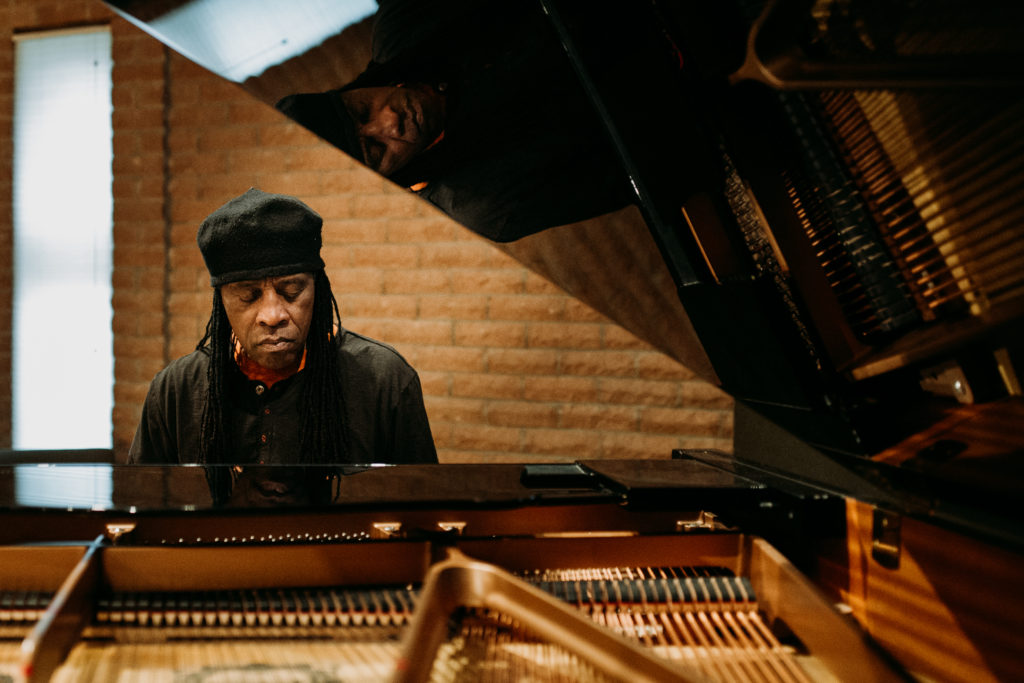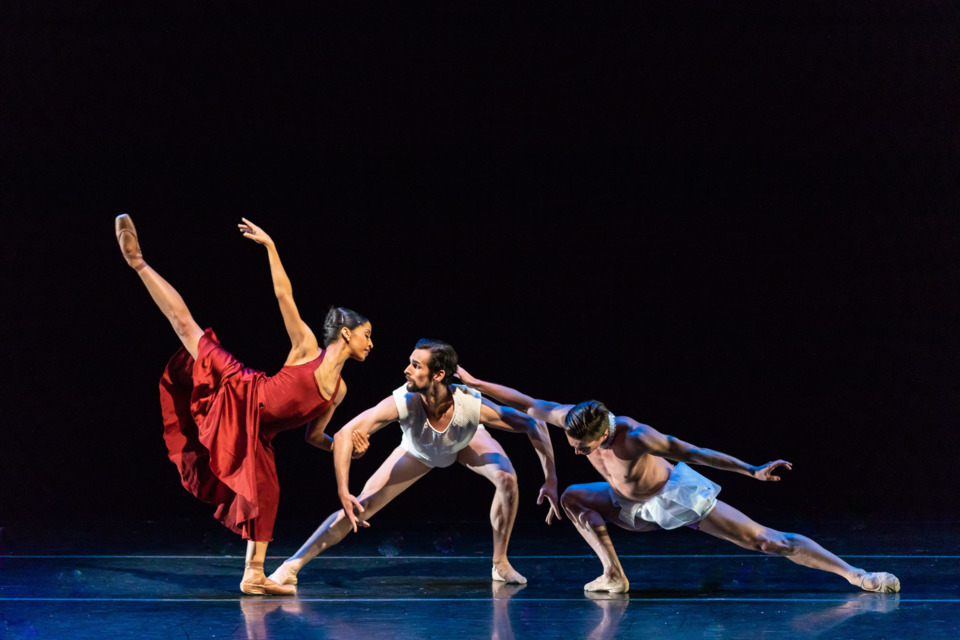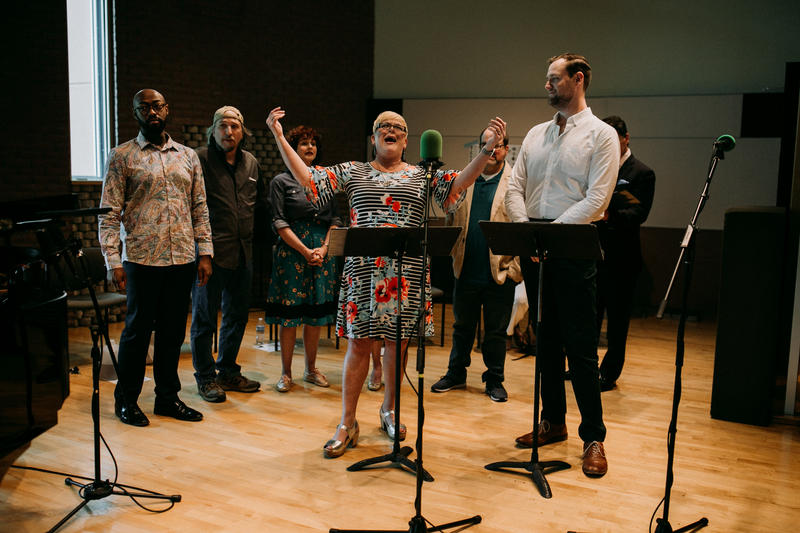
As the 2018/2019 arts season in Nashville drew to a close, one thing is apparent in hindsight: the underrepresented clearly have a voice in Music City’s classical scene.
Many of classical music’s groups in Nashville consistently perform works by composers who are in the minority within the genre. But across multiple schedules this was particularly evident this season. For example, OZ Arts hosted Black violinist Juliette Jones, the Vanderbilt Community Chorus’s spring concert featured a full program of works by women, and Tennessee State University continues to build the scope of its HT Burleigh Festival.
Some ensembles took a direct approach by not only programming these voices, but also works that face the societal issues of marginalized groups. In the shadow of #MeToo and #BlackLivesMatter, with refugees in custody at the southern border, a ban of transgender individuals from military service, and a wave of teacher strikes throughout the country, ensembles city-wide did not shy away from art that faced these issues head-on. The voices of those on the outside, both currently and historically, were lifted up consistently throughout this season.
Lucy Negro Redux
Nashville Ballet’s audience was treated to a new work in February, featuring the so-called “dark lady” of William Shakespeare’s sonnets.

Nashville Ballet’s “Lucy Negro Redux”Nashville Ballet
Lucy Negro Redux set the poetry of Caroline Randall Williams alongside the music of Rhiannon Giddens and Francesco Turrisi to choreography by Paul Vasterling. The piece received national attention, with a New York Times review titled, “A Nashville Miracle.”
Williams consistently referred to taking her place in the “Shakespeare Space.” And through the lens of Lucy she found the realization that she always belonged there. Giddens echoed this sentiment, pointing out that while it’s a well-known historic fact that there were black individuals in Elizabethan England, these faces are rarely portrayed in art that takes place during that time.
With Rowser in the role of Lucy, with Giddens’s music, with Williams’s voice narrating, and even with the overall ethnic diversity of the Nashville Ballet company, audiences were treated to a portrayal of the time of Shakespeare that may have seemed radical in the moment, but was likely the most complete version possible.
72 Steps
Nashville Ballet’s second company NB2 told a different history which also included a woman at its center.

NB2 performs “72 Steps”Nashville Ballet
72 Steps was commissioned by the League of Women Voters of Nashville, and while each step of the suffrage movement is shown, particular attention is given to Phoebe Burn’s letter to her son Harold, who was the swing vote in the ratification of the 19th amendment.
Members of the company wrote their own advocacy letters as part of the creation of the piece, and the text is woven into the score. Composer Jordan Hamlin’s score is, by design, one of the few used by Nashville Ballet that is not performed live. But Hamlin used this to her advantage, applying effects and layers that would not be possible in a live setting.
The piece will tour Metro Nashville schools during the 2019/2020 season, as the centennial of women’s suffrage approaches. It will be performed alongside workshops and activities that help the students understand the struggle of the suffrage movement, showing parallels of this century-old tale with political issues faced today.
Crucifixion/Resurrection
On Feb. 9, an audience at Fisk University, clad in white, processed from Fisk Chapel to Jubilee Hall. This prelude to Hannibal Lokumbe’s Crucifixion/Resurrection – Nine Souls A Traveling connected Fisk in the 1870s to Fisk today by way of 1963’s church bombing in Birmingham, and the 2015 shooting at Emanuel African Methodist Episcopal Church in Charleston, South Carolina. In the piece of music, one by one, each of the nine killed in Charleston answer the question, “What is it you would ask to be recorded in the book of ages?” creating an individual memorial for the souls who were lost in the form of testimony – focusing on the running themes of love and forgiveness.
Lokumbe’s residency with Intersection also included a performance at the public library, as well as two concerts for incarcerated individuals at detention centers. Chamber music featuring a string quartet along with contralto Gwendolyn Brown told the stories of Fannie Lou Hamer and Anne Frank. Alongside Lokumbe’s jazz trumpet improvisation, these pieces wove a complete narrative of forgiveness as an act of freedom.
Lokumbe minced no words when introducing Hamer and Frank’s stories during these performances. The tale of Hamer’s own incarceration and survival especially resonated as Lokumbe invited audience members to commit to, as he put it, “falling in love with forgiveness,” as well as documenting their own story for their descendants.
Hello Gold Mountain

Composer Wu Fei previewing new work Hello Gold MountainKara McLelandNashville Public Radio
Chatterbird’s composer-in-residence Wu Fei brought a unique set of experiences to her composition Hello Gold Mountain. The piece tells the tale of the Jewish refugees who fled to Shanghai at the start of World War II, and Fei herself is a Chinese immigrant, married to a Jewish man. Guzheng, oud, and western chamber music combined in a musical culture clash that echoed what the small community in early 1940s China must have felt.
While many attending the concert were learning of the Shanghai Ghetto’s history for the first time, a surprising number of individuals reached out to say that this community was the reason their family had survived the war. In particular, local Rabbi Mark Schiftan’s parents had met in the Shanghai Ghetto.
Schiftan traced the echo of this story through today as he found parallels in every individual fleeing their home due to some sociopolitical crisis. When Schiftan said, “No one leaves their home unless what they’re fleeing is more dangerous that what they might find,” he spoke not only for refugees of the holocaust, but also in solidarity with those who still seek shelter.
The Cradle Will Rock
Solidarity was a key word for the union-based theme of Mark Blitzstein’s opera that famously almost didn’t premiere in 1937 and got its due in Music City thanks to Nashville Opera. On a minimal set, a cast of local singers brought The Cradle Will Rock to life. Performances of the piece marked the 10th anniversary of the Noah Liff Opera Center.

cast of Nashville Opera’s ‘The Cradle Will Rock’ Live in Studio CKara McLelandLive in Studio C
Mark Blitzstein himself is an example of a voice that was silenced. At the fairly young age of 58 the composer was beaten to death by a group of sailors while on vacation, after an interaction that made Blitzstein’s homosexuality apparent. This was six years after Blitzstein had been compelled to appear before the House Committee on Un-American Activities, wherein he refused to release any names of fellow Communist Party members.
In the opera the characters crumble from their honest places in society one by one, each caving to the corruption of local boss, appropriately named Mister Mister. From the beginning it is apparent to the audience that the only honest presence in the town is the prostitute, named Moll, who ends up arrested next to a band of protestors because she refused the advances of a corrupt police officer. Alongside the union leader, who tears up his financial bribe, Moll is the last honest voice in Blitzstein’s “Steeltown, USA.”
Those Moments
When composer TJ Cole accepted her commission to write a work for Intersection and Nashville in Harmony, she was prepared to write a very different piece than what ended up being
Those Moments. Cole was planning an oratorio that told of themes of questioning, discovery, and uniqueness in gender identity as an allegory – even going as far as predicting that the work would be science fiction, set in outer space.
But when she visited Nashville in the fall to collect the stories of members of Nashville in Harmony, Cole was so compelled that she took a completely different approach. The voices themselves created a framework around which singers could contribute their own experiences even within the performance itself. Prompts in the score such as, “What is something that you have worn that made you comfortable, confident, and like it represented you?” brought even seemingly mundane objects an important place in the spotlight because of their role in the choir members’ lives.
Aiv Rubino’s libretto asks, “Is there a space for me?” And much like Williams, Giddens, and Rowser in Lucy Negro Redux, Cole and Rubino also fully demonstrated what that means – directly and deliberately, including the phrase that seems to sum up this entire season.
“My song grows even stronger the more you try to silence me.”